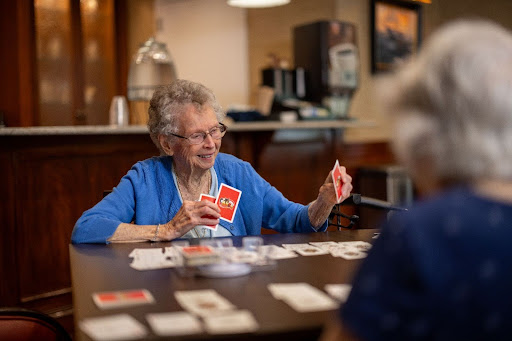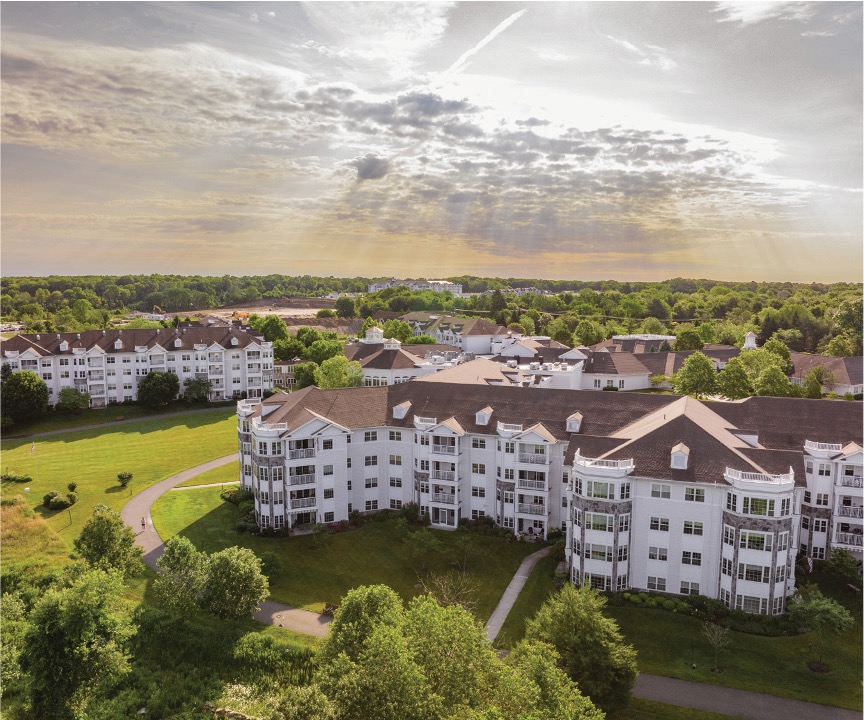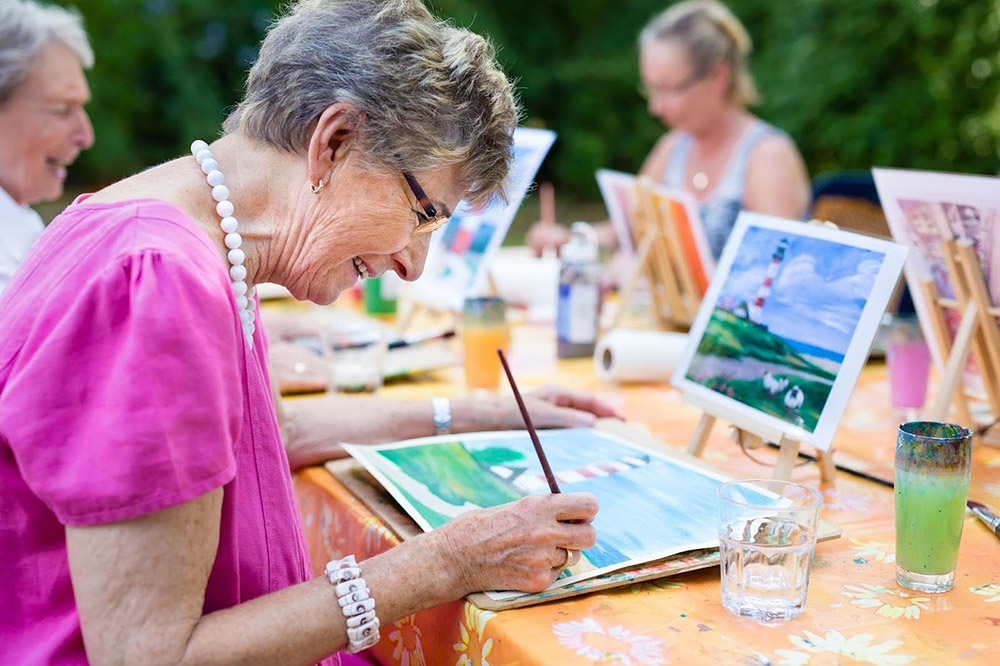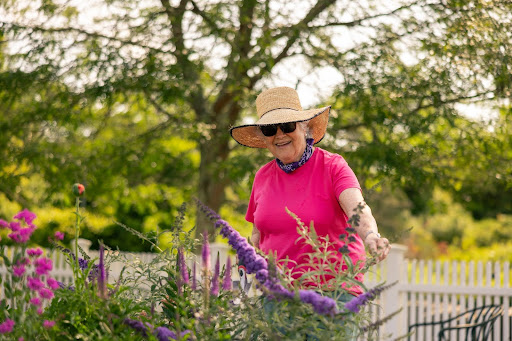
Contact
The 5 Emotional Stages of Retirement: How To Rediscover Yourself
Transitioning out of the workforce is a significant life change, and it’s natural to experience a range of feelings on your path to rediscovery. While individual experiences can vary, many older adults typically experience 5 emotional stages of retirement:
- Excitement and anxiety
- Euphoria and exploration
- Disenchantment
- Renewal
- Comfort and contentment
StoneRidge is here to guide you through it all. In this road map, you’ll discover these stages, along with insightful advice from our very own residents on how to embrace each transition and make the most of your retirement.
Stage 1: Excitement and Anxiety in Pre-Retirement
Pre-retirement is an exciting but complex time filled with mixed emotions and important decisions. Many older adults in this stage of retirement are excited about their next chapter but also worry about things like filling their free time, financial security, and social isolation.
This stage is a unique experience for everyone, and by understanding your emotions, you can embrace the exciting opportunities that lie ahead.
Here are tips to help you with pre-retirement emotions:
- Embrace the anticipation of freedom, travel, and pursuing passions
- Acknowledge anxieties about finances, identity, and filling your days
- Research new interests, old hobbies and volunteer opportunities
- Review your budget, explore retirement income options, and consult a financial advisor to create a realistic retirement plan
- Start planning how you’ll stay connected with loved ones and build new social circles
Stage 2: Euphoria and Exploration in Early Retirement
Often known as the honeymoon phase, early retirement typically involves leaning into the freedom and flexibility that come with retirement. Your schedule is no longer restricted by a work schedule, and you finally have time to pursue your hobbies, relax, travel, connect with family, and everything else in between.
However, it’s important to be aware of potential challenges like quickly getting bored and increased spending.
These are tips to help you make the most of this fun and fulfilling stage of retirement:
- Enjoy your newfound freedom, but be mindful of your budget
- Live in the moment and appreciate the simple joys of life
- Focus on activities that contribute to your well-being
- Structure your days to align with your lifestyle goals
- Explore activities that give you a sense of purpose and contribution
If there’s anyone who knows how to maximize their retirement lifestyle, it’s the residents at StoneRidge. See how this StoneRidge resident established their routine in early retirement:
“I tried to do the same things each week, such as cleaning. I was able to work a part-time job, so it was nice not to go from 40+ hours a week to zero in just one weekend.”
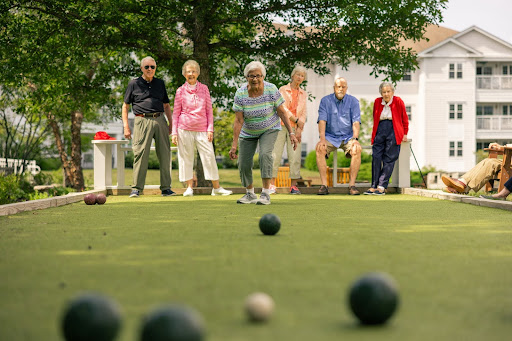
Stage 3: Disenchantment After the Honeymoon Phase
Disenchantment often follows the exhilarating early retirement phase as the initial freedom and novelty wears off. Many older adults feel disconnected, isolated, and anxious. A schedule without daily purpose can lead to boredom and restlessness, while activities that initially excite you might lose their appeal.
It’s important to remember that this phase is temporary and doesn’t define your entire retirement experience.
Here are tips to help you reconnect with your retirement journey and navigate disenchantment:
- Don’t suppress emotions; talk to friends, family, or a therapist for support
- Prioritize healthy habits like exercise, healthy eating, and stress management
- Build new social connections by joining clubs and groups that share your interests
- Let go of expectations of what retirement “should be” and don’t compare your retirement with others
- Consider volunteering, mentoring, or part-time work to contribute to your community and feel valued
StoneRidge is filled with kind and supportive residents. Learn how this resident leaned on their friends and neighbors in our senior living community to help them through experiencing disenchantment:
“I came to StoneRidge, because I knew it was the right place for my husband. However, it wasn’t really what I wanted to do. That was more than four years ago, and my neighbors at StoneRidge quickly helped me realize what a wonderful place we chose. This transplanted southerner is now quite content here in New England. Thank you StoneRidge!”
Stage 4: Rediscovery and Renewal Through Reorientation
The reorientation stage of retirement is packed with opportunities to redefine or rediscover yourself. As you adapt your lifestyle to better suit your needs and goals, you’ll begin to experience renewed purpose and personal growth and foster more meaningful relationships.
These are tips for a successful reorientation during retirement:
- Nurture existing relationships and actively build new ones equally
- Find the value in non-work-related activities
- Keep learning new things and improving your current skills
- Set small, achievable goals for personal growth
- Don’t rush; work through each stage of retirement at your own pace
Stage 5: Stability Brings Comfort and Contentment
This stage is where you’ve truly mastered the art of retirement. You’ll feel confident in your routine and lifestyle while simultaneously embracing the present and looking forward to the future.
Here are practical tips to keep thriving:
- Review your budget regularly and plan ahead for long-term care
- Don’t neglect regular health checkups
- Eat well, exercise regularly, and get adequate sleep
- Manage stress and engage in activities that stimulate your mind
- Make time to celebrate your accomplishments
It’s also important to maintain strong social connections throughout the 5 emotional stages of retirement. Studies consistently show that having close friends is associated with higher levels of happiness and life satisfaction in older adults. See how this StoneRidge resident prioritizes quality time with friends and family:
“We’re very serious about making quality time for our loved ones, and make dinner reservations with friends at least every week or so. Thankfully, StoneRidge makes it easy to stay connected!”
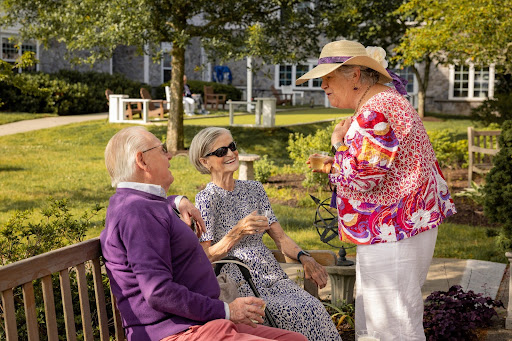
Find Your Passion. Find Your People.
Searching for a retirement with a purpose? Envision your retirement with a worry-free and engaging lifestyle at StoneRidge. Call our team at 860.333.8995 or contact us online to learn more about joining our community or the Compass Club, our Waitlist Program.



